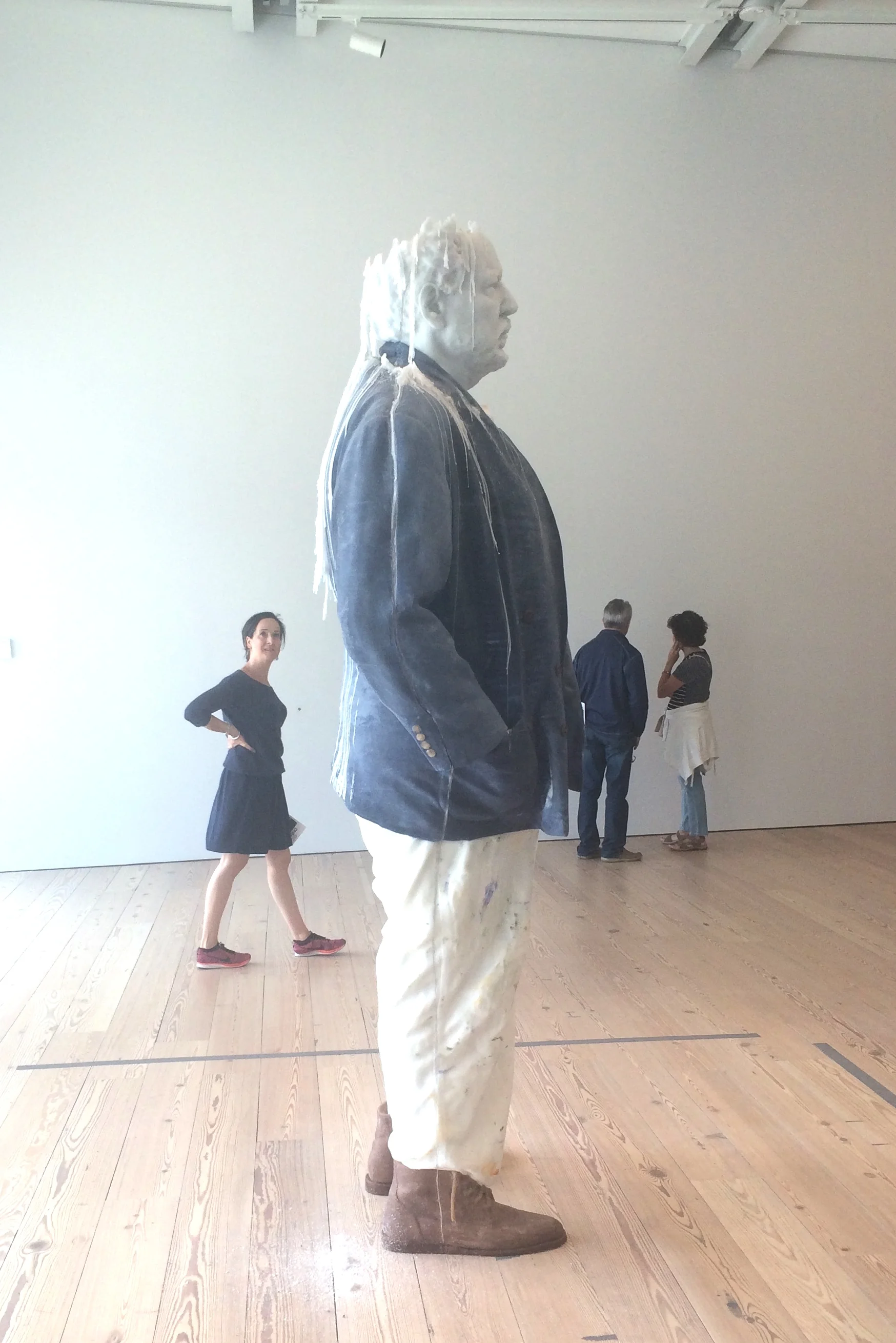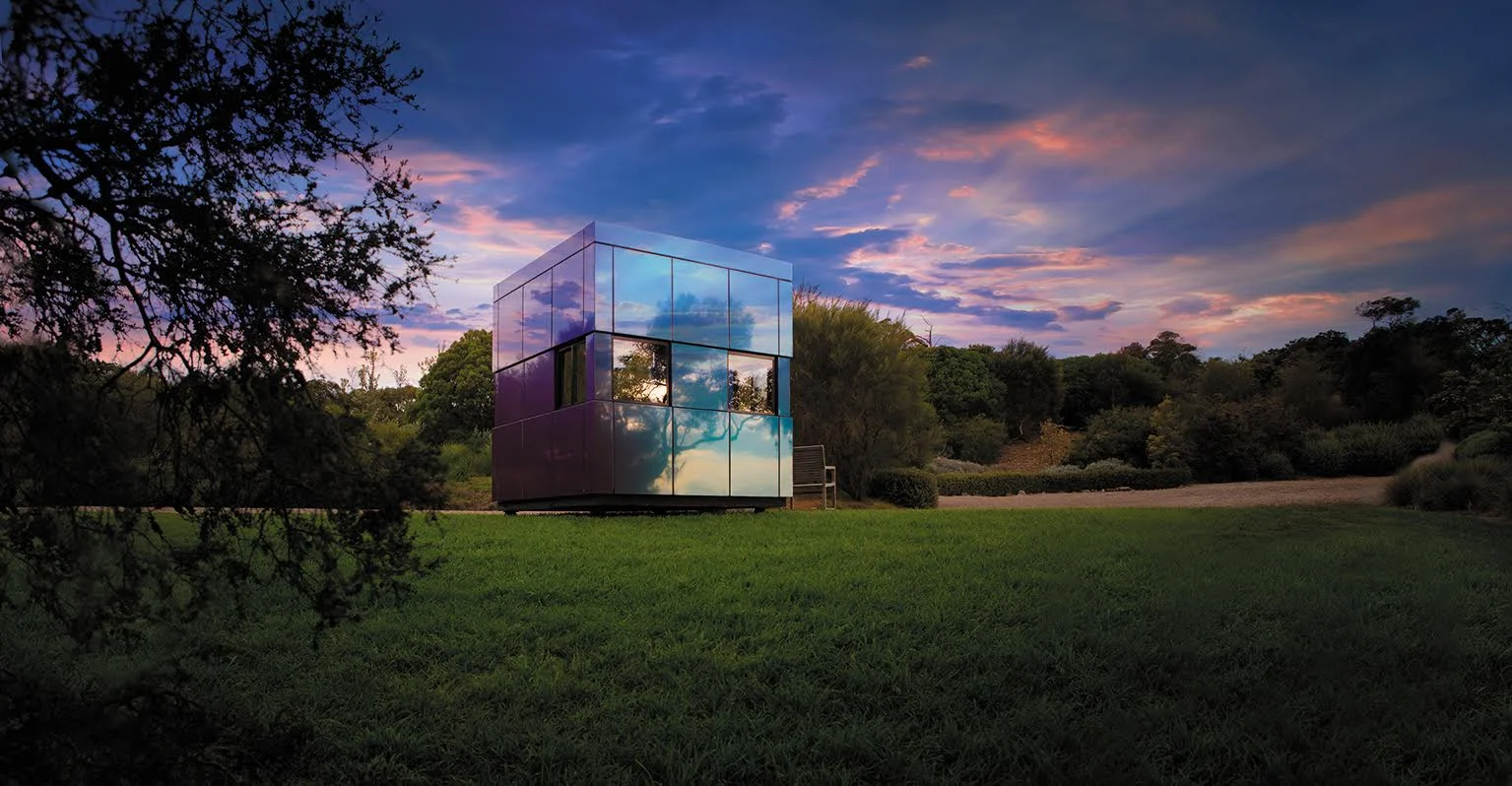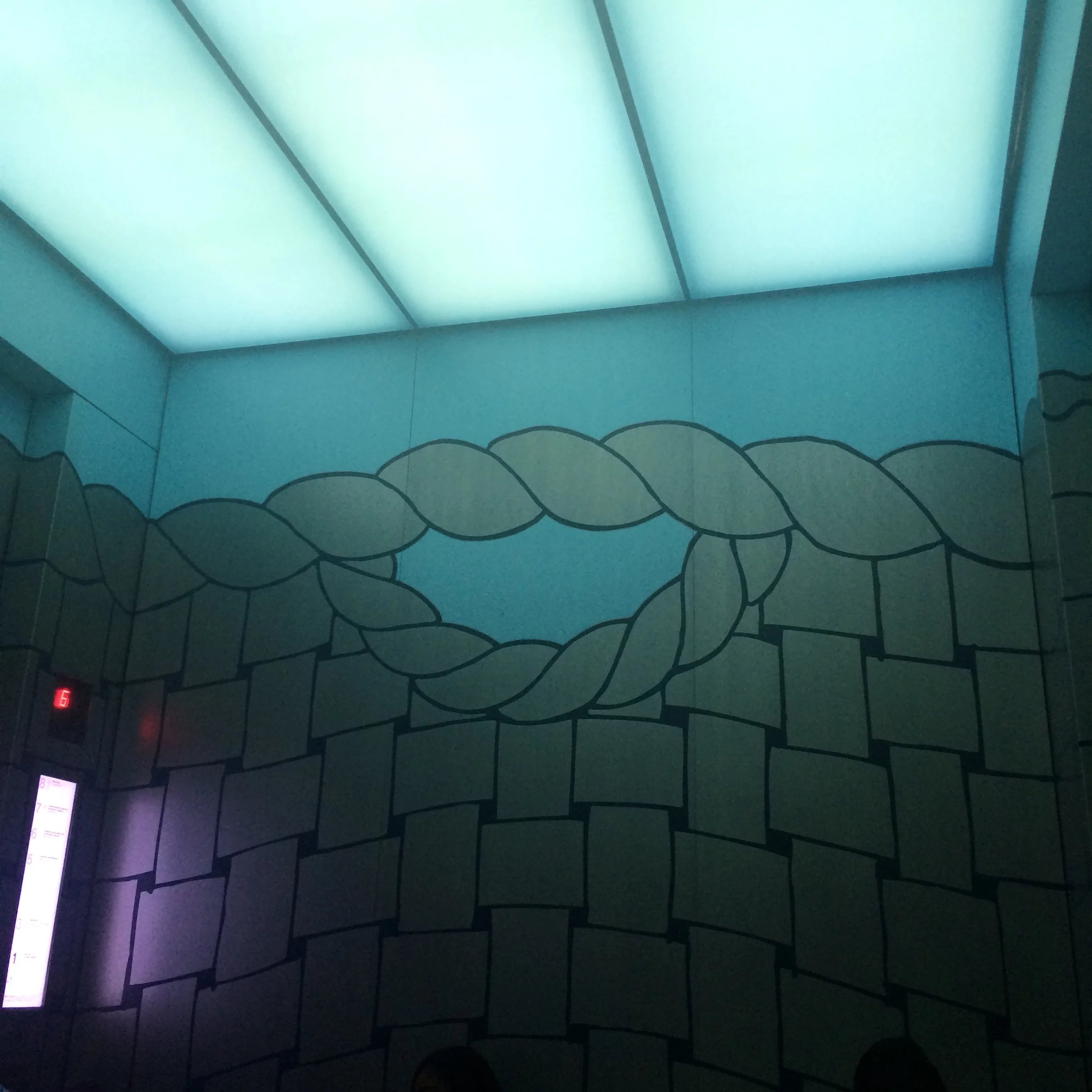Second Life Material
What do a towering wax portrait and a Cradle-to-Cradle construction system have in common? A second life.
My favorite experience at the Whitney Museum was coming face to face with a towering wax candle portrait. "Standing Julian" is a portrait of artist Julian Schnabel, created by fellow artist Urs Fischer. True to its waxy character, "Standing Julian" is lit every day, like a candle. Every day, a portion of its head or coat melts and drips down towards the ground. One day, the complete portrait will have melted away.
Fischer intended that the portrait disintegrate, and the puddle of wax left behind be shaped again into a fresh form.
Urs Fischer's " Standing Julian melts slowly every day. @The Whitney Museum of American Art.
Seeing this triggered several thoughts for me: Why doesn't architecture behave THIS way? Break down into its components at the end of its life, and without losing quality, successfully send materials onward to a new life. Today materials like concrete, wood and metal are repurposed or recycled only after the fact. Not enough building takes place keeping in mind the second life of building materials.
One approach is trying to change that. The Cradle-to-Cradle design approach. Proponents of this process, William McDonough + Partners launched ICEhouse at the World Economic Forum in Switzerland this year. ICEhouse is designed for disassembly and complete re-use of components in their original form. A flexible aluminum structural system called WonderFrame, Polymer, Nylon, and Aerogel make the body of the building. The building is ephemeral and yet robust and functional.While the aesthetic of the structure leaves much to be desired, this is certainly a step in the right direction for design.
Read more about ICEhouse and the Cradle-to-Cradle Design approach and certified materials here.








